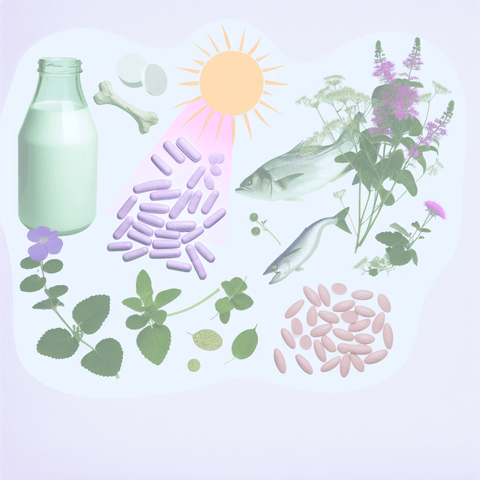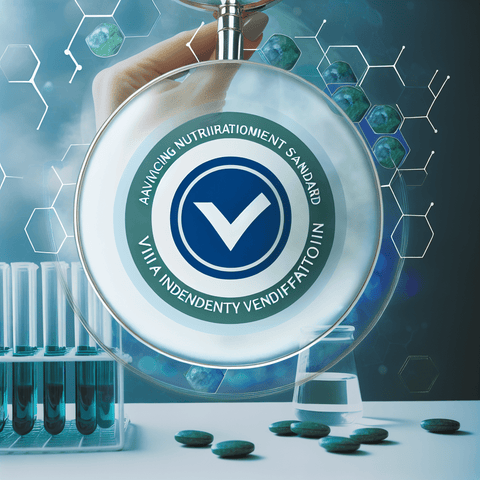Premenstrual Syndrome (PMS) is an unsettling reality for many women, characterized by a range of physical and emotional symptoms that can disrupt daily life. While lifestyle changes and pharmaceutical interventions are common, an increasing number of women are exploring dietary supplements as a natural means of relief. This blog delves into various supplements that may help alleviate PMS symptoms, examining their efficacy and safety.
Understanding PMS: A Complex Condition
PMS encompasses a broad spectrum of symptoms, including mood swings, irritability, anxiety, depression, bloating, breast tenderness, and cramps. These symptoms typically occur in the luteal phase of the menstrual cycle, about one to two weeks before menstruation. Although the exact cause of PMS is unknown, it is believed to result from hormonal fluctuations and neurotransmitter imbalances. Understanding these underlying mechanisms is crucial for identifying effective treatment options.
Calcium and Vitamin D: Essential for PMS Relief
Calcium and Vitamin D have been extensively researched for their role in alleviating PMS symptoms. Calcium is vital for bone health, but it also influences neurotransmitter function and muscle contraction, making it beneficial for reducing mood swings and cramps. Studies have shown that women with low calcium intake are more likely to experience severe PMS symptoms. Vitamin D, which facilitates calcium absorption, further enhances these effects. For those seeking to optimize their intake of these nutrients, products like those available on Topvitamine.com offer a convenient solution.
Magnesium: The Muscle Relaxant
Magnesium plays a crucial role in muscle relaxation and neurotransmitter regulation. Supplementing with magnesium may help alleviate PMS symptoms such as cramps, mood swings, and fatigue. It is involved in more than 300 biochemical reactions in the body, including muscle and nerve function, making it a valuable nutrient for those suffering from PMS. For individuals looking to incorporate magnesium into their regimen, Topvitamine.com provides a range of magnesium supplements tailored to support muscle and bone health.
Omega-3 Fatty Acids: Anti-Inflammatory Benefits
Omega-3 fatty acids, particularly DHA and EPA, are renowned for their anti-inflammatory properties. These essential fats may help reduce PMS symptoms such as breast tenderness, cramps, and mood disturbances. Studies suggest that omega-3 supplementation can decrease the production of inflammatory prostaglandins, which are believed to contribute to PMS symptoms. To explore high-quality omega-3 supplements, visit Topvitamine.com, where a variety of options are available.
Vitamin B6: The Mood Regulator
Vitamin B6 is involved in the synthesis of neurotransmitters such as serotonin, dopamine, and gamma-aminobutyric acid (GABA), which play a role in mood regulation. Deficiencies in this vitamin have been linked to increased PMS severity, particularly mood-related symptoms like depression and irritability. Supplementing with Vitamin B6 can support neurotransmitter balance, potentially reducing these symptoms. Incorporating Vitamin B6-rich foods or supplements into your diet can be an effective strategy for managing PMS-related mood disturbances.
Herbal Remedies: Nature's PMS Solutions
Beyond vitamins and minerals, various herbal remedies have been traditionally used to mitigate PMS symptoms. Chasteberry, also known as Vitex agnus-castus, is one such herb that has shown promise in clinical trials for reducing breast pain, irritability, and headaches. Evening primrose oil, rich in gamma-linolenic acid (GLA), is another popular choice for alleviating breast tenderness and bloating. While these herbal remedies can be effective, it is essential to consult with a healthcare provider to ensure they are safe and appropriate for individual health conditions.
Integrating Supplements into Your Routine
When considering supplements for PMS, it is crucial to adopt a holistic approach, combining dietary changes, lifestyle modifications, and supplements for optimal results. Regular exercise, a balanced diet rich in fruits, vegetables, and whole grains, and adequate hydration can complement the benefits of supplements. Additionally, consulting with a healthcare professional can help tailor a supplement regimen to meet specific needs and prevent potential interactions with medications.
Conclusion
While PMS can be a challenging condition, the right combination of supplements may offer significant relief from its symptoms. Calcium, Vitamin D, magnesium, omega-3 fatty acids, and Vitamin B6 are among the most researched and effective options available. Additionally, herbal remedies like chasteberry and evening primrose oil provide natural alternatives for those seeking relief. By understanding and addressing the underlying causes of PMS, women can take proactive steps towards improving their quality of life.
Q&A Section
Q: Can supplements completely cure PMS?
A: While supplements can significantly alleviate symptoms, they may not completely cure PMS. A holistic approach, including lifestyle modifications, is essential for comprehensive management.
Q: Are there any risks associated with taking PMS supplements?
A: Most supplements are safe when taken as directed, but it is crucial to consult with a healthcare provider, especially if taking other medications or if pregnant or breastfeeding.
Q: How long does it take to see results from supplements?
A: The time frame can vary, but many women report improvements within a few menstrual cycles of consistent use.
Important Keywords
PMS symptoms, supplements, calcium, Vitamin D, magnesium, omega-3 fatty acids, Vitamin B6, herbal remedies, chasteberry, evening primrose oil, mood swings, cramps, bloating.



